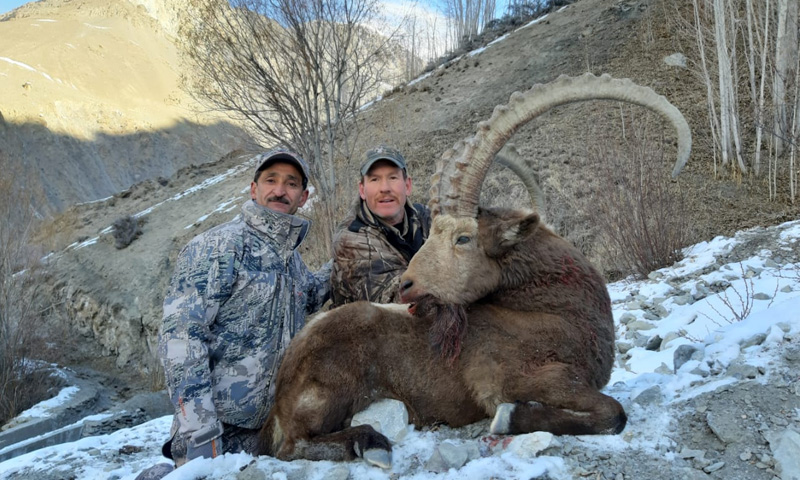- Web Desk
- Yesterday
KP rakes in $905k via four markhor licenses in 2024
-

- Web Desk
- Dec 27, 2024

PESHAWAR: With plans to increase the number of licenses allocated in Khyber Pukhtunkhwa, the Wildlife department issued four licenses to hunt markhor in 2024, making a profit of USD905,000.
According to Special Assistant for Wildlife, Pir Musawwar, the most expensive license was issued for USD271,000 while the second one went for USD191,000. He added that efforts were being made to present accurate statistics regarding presence of markhor in the region, reported Hum News.
The permits were auctioned this year in October by the department in Chitral and Kohistan districts through open bidding.
With proper process in place by the government, the hunting permits are issued through the wildlife department to ensure markhor are not illegally hunted in the country. On Thursday, a wildlife magistrate court in Gilgit sentenced two men to two years in prison and imposed a fine of Rs300,000 each for illegally hunting an Astore markhor, a rare and endangered species of wild goat native to the region.
Also read: Trophy hunting: Astore Markhor permits fail to attract bidders in reauction
The Forest, Parks, Wildlife, and Environment Department of Gilgit-Baltistan apprehended the accused, Malik Shah and Mansoor Khan, both residents of the Barms area of Gilgit, during a coordinated operation in the Barms Nullah. Acting on a tip-off, the department, with support from Frontier Constabulary personnel, confiscated nine kilograms of markhor meat, a 7mm rifle, six live cartridges, and a pair of binoculars from the culprits.
Hunting of protected species, including the Astore markhor, is strictly prohibited except under regulated trophy hunting programmes, which are designed to contribute to conservation efforts.
Each year, the Forest, Parks, and Wildlife Department of Gilgit-Baltistan (GB) organises regulated trophy hunting programs for endangered animals such as the Himalayan ibex, blue sheep, and Astore markhor. These programs, initiated in the 1980s, operate under the Convention on International Trade in Endangered Species (CITES) and are restricted to designated areas in GB.
The trophy hunting program is conducted in collaboration with local communities, who receive 80 per cent of the hunting fees, while the government utilises the remaining 20 per cent for forest preservation and biodiversity conservation.
For the 2024-25 trophy hunting season, the department has offered 118 permits, including four for Astore markhor, 14 for blue sheep, and 100 for Himalayan ibex. These permits have been allocated to community-controlled hunting areas (CCHAs) across Gilgit-Baltistan. Of these, permits for shooting four Astore markhor, 12 blue sheep, and 86 Himalayan ibexes have already been sold.




